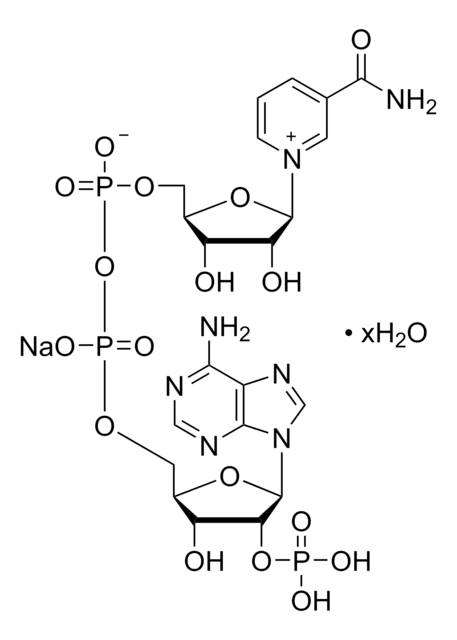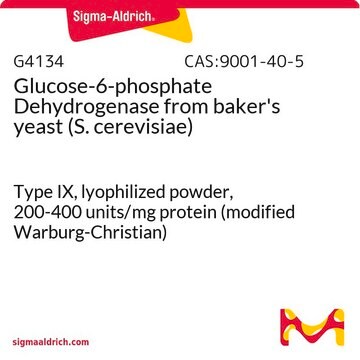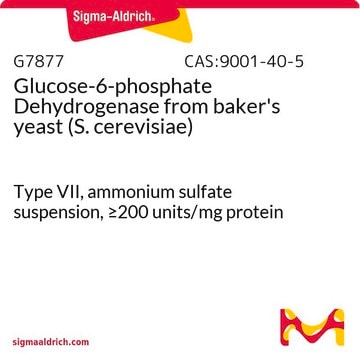G7879
D-Glucose 6-phosphate sodium salt
≥98% (HPLC)
Synonym(s):
D(+)-Glucopyranose 6-phosphate sodium salt, G-6-P Na, Robison ester
About This Item
Recommended Products
biological source
synthetic (organic)
Quality Level
Assay
≥98% (HPLC)
form
crystalline
technique(s)
HPLC: suitable
color
white
useful pH range
4.0-5.0
mp
204 °C (dec.) (lit.)
solubility
water: 50 mg/mL, clear, colorless to very faintly yellow
cation traces
Na: 6.1-10.2% (anhydrous)
storage temp.
room temp
SMILES string
[Na+].O[C@@H]1O[C@H](COP(O)([O-])=O)[C@@H](O)[C@H](O)[C@H]1O
InChI
1S/C6H13O9P.Na/c7-3-2(1-14-16(11,12)13)15-6(10)5(9)4(3)8;/h2-10H,1H2,(H2,11,12,13);/q;+1/p-1/t2-,3-,4+,5-,6-;/m1./s1
InChI key
ZALKNDISPIVVKC-WYRLRVFGSA-M
Looking for similar products? Visit Product Comparison Guide
Application
Biochem/physiol Actions
Caution
Other Notes
Storage Class Code
11 - Combustible Solids
WGK
WGK 3
Flash Point(F)
Not applicable
Flash Point(C)
Not applicable
Personal Protective Equipment
Choose from one of the most recent versions:
Certificates of Analysis (COA)
Don't see the Right Version?
If you require a particular version, you can look up a specific certificate by the Lot or Batch number.
Already Own This Product?
Find documentation for the products that you have recently purchased in the Document Library.
Customers Also Viewed
Articles
Warburg effect enhances glucose to lactate conversion in tumor cells, regardless of oxygen levels; impacting cancer metabolism since 1924.
Protocols
To measure glucose-6-phosphatase activity, the Taussky-Shorr method is used. This method is a spectrophotometric stop-rate determination assay that is measured at 660 nm.
To measure glucose-6-phosphate dehydrogenase activity, beta-nicotinamide adenine dinucleotide phosphate is used in a spectrophotometric rate determination assay at 340 nm.
Our team of scientists has experience in all areas of research including Life Science, Material Science, Chemical Synthesis, Chromatography, Analytical and many others.
Contact Technical Service









